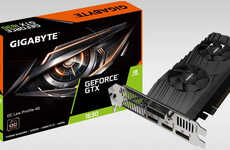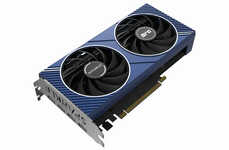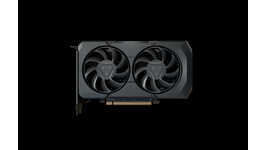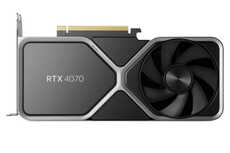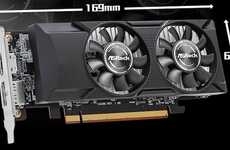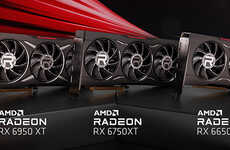
This Nvidia Graphics Card Offers Entry-Level VR Functionality
Rahul Kalvapalle — October 20, 2016 — Tech
References: blogs.nvidia & newatlas
Nvidia graphics cards have long been renowned for their reliability and quality, which is precisely why the company has decided to go ahead and release a brand new VR graphics card whose low price is designed to assuage fears that virtual reality computing might not be affordable to most people.
Dubbed the GTX 1050, this particular Nvidia graphics card is not quite as powerful as some other Nvidia offerings, but is designed to be able to function with 2 GB of high-end RAM and a speed of 1,354 megahertz per second, figures that make it clear that this graphics card may not be the highest-performing one around, but is well and truly targeted towards gamers looking to enter the world of virtual reality gaming from the comfort of their homes, without unduly disrupting their bank balances.
Dubbed the GTX 1050, this particular Nvidia graphics card is not quite as powerful as some other Nvidia offerings, but is designed to be able to function with 2 GB of high-end RAM and a speed of 1,354 megahertz per second, figures that make it clear that this graphics card may not be the highest-performing one around, but is well and truly targeted towards gamers looking to enter the world of virtual reality gaming from the comfort of their homes, without unduly disrupting their bank balances.
Trend Themes
1. Affordable VR Graphics Cards - This trend presents an opportunity for businesses to cater to the growing demand for entry-level VR graphics cards, making virtual reality more accessible to a wider audience.
2. Reliable and Quality Nvidia Graphics Cards - Companies can leverage the reputation of Nvidia's reliable and quality graphics cards to develop innovative solutions that enhance the virtual reality experience.
3. Targeted Gaming VR Graphics Cards - There is a disruptive innovation opportunity for businesses to develop specialized gaming VR graphics cards that meet the needs and budgets of gamers entering the world of virtual reality gaming.
Industry Implications
1. Computer Hardware - The computer hardware industry can tap into the trend of affordable VR graphics cards by manufacturing and selling entry-level VR graphics cards to cater to the expanding virtual reality market.
2. Gaming - The gaming industry can capitalize on the demand for targeted gaming VR graphics cards by partnering with graphics card manufacturers to develop optimized gaming hardware and software for virtual reality gaming.
3. Virtual Reality - The virtual reality industry can seize the opportunity presented by reliable and quality Nvidia graphics cards by incorporating them into their VR systems to provide users with a seamless and immersive virtual reality experience.
3.4
Score
Popularity
Activity
Freshness


